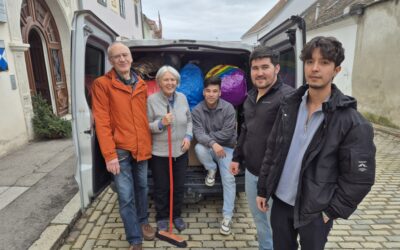In the spirituality of unity a person not only seeks God in the depths of their own soul, but discovers His presence in the space that opens up when two or more people love one another in the spirit of the Gospel. The image that Chiara Lubich uses to describe this reality is that of a castle: not an interior castle, but an exterior one. For those who follow the way of unity, the presence of Jesus in the midst of their brothers and sisters is essential. Despite our personal inadequacy, we must always keep this presence alive. It is precisely this that characterizes the charism of unity. Just as two poles of electricity, even when there is a current, do not produce light until they are joined together, likewise two persons cannot experience the light of this charism until they are united in Christ through charity. In this way of unity, everything — in our work, study, prayer, striving toward sanctity or the spreading of Christian life — takes on meaning and value, as long as we keep, with our brothers and sisters, the presence of Jesus in our midst, for that is the norm of norms for this way of life. In this spirituality we reach sanctity if we walk toward God in unity. … St. Teresa of Avila, a doctor of the church, speaks of an “interior castle”. It is the soul with the divine majesty dwelling at its centre, revealing and shedding light on everything throughout life, allowing it to overcome every sort of trial. Even though St. Teresa drew all her daughters into this experience, it is a height of sanctity that is primarily personal. But then came the moment at least so it seemed to us, of discovery, of shedding light upon and building not just the “interior castle” but “the exterior castle.” But if we consider that this new spirituality God is giving the Church today has reached leaders in Church and society, then we see that this charism … tends to make an exterior castle also in the whole body of the Church and of society. Pope John Paul II, speaking recently to some seventy bishops, friends of the Movement, said: “The Lord Jesus … did not call his followers to individual discipleship but to a discipleship that is both personal and communitarian. And if that is true for all the baptized, it is true in a special way … for the apostles and for their successors the bishops.” 1 So this spirituality, like all charisms, is for the whole people of God whose vocation is to become ever more united and ever more holy.
Chiara Lubich
Taken from: “A Spirituality of Communion” in Chiara Lubich: Essential Writings, New City Press, Hyde Park, New York 2007, pp. 31-32. 1) Insegnamenti di Giovanni Paolo II, XVIII [Teachings of John Paul II] (1995) 1, Città del Vaticano 1997, p.382.




0 Comments